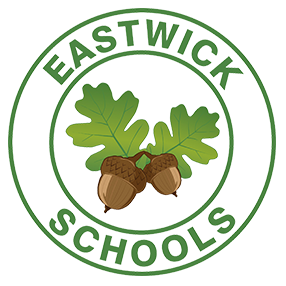Geography
National Curriculum Purpose of Study
A high-quality geography education should inspire in pupils a curiosity and fascination about the world and its people that will remain with them for the rest of their lives. Teaching should equip pupils with knowledge about diverse places, people, resources and natural and human environments, together with a deep understanding of the Earth’s key physical and human processes. As pupils progress, their growing knowledge about the world should help them to deepen their understanding of the interaction between physical and human processes, and of the formation and use of landscapes and environments. Geographical knowledge, understanding and skills provide the frameworks and approaches that explain how the Earth’s features at different scales are shaped, interconnected and change over time.
National Curriculum Aims
The national curriculum for geography aims to ensure that all pupils:
- develop contextual knowledge of the location of globally significant places – both terrestrial and marine – including their defining physical and human characteristics and how these provide a geographical context for understanding the actions of processes
- understand the processes that give rise to key physical and human geographical features of the world, how these are interdependent and how they bring about spatial variation and change over time
- are competent in the geographical skills needed to:
- collect, analyse and communicate with a range of data gathered through experiences of fieldwork that deepen their understanding of geographical processes
- interpret a range of sources of geographical information, including maps, diagrams, globes, aerial photographs and Geographical Information Systems (GIS)
- communicate geographical information in a variety of ways, including through maps, numerical and quantitative skills and writing at length.
Geography at Eastwick - Intent
The geography curriculum at Eastwick meets the requirements of the National Curriculum and our school's Curriculum Intent. It prepares children to be ‘Ready for Everything’ in their futures in terms of:
- Success in the next stage of their education and beyond: by ensuring children have a diverse knowledge of the world including their locality; by providing a strong focus on geographical knowledge and fieldwork skills so that children think like a geographer; by ensuring children understand how the earth’s features, at different scales, are shaped, interconnected and changed over time.
- their ability to navigate life’s personal Challenge: by developing curious, explorative and critical thinking, with the ability to ask perceptive questions and explain and analyse evidence.
- understanding their place in communities at global, national and local levels and seize the Opportunity of the future: building an awareness of how geography shapes our lives, and encourages pupils to become resourceful, active citizens who will have the skills to contribute to and improve the world around them.
Geography at Eastwick - Implementation
- In Reception, pupils are taught elements of geography that prepare them for the Year 1 curriculum.
- Our curriculum in Years 1-6 uses the Kapow Geography scheme of work.
- Knowledge is built progressively throughout Key Stages 1 and 2. For each unit, the following is identified:
- 'knowledge end points' ('I know (that)...' or 'I know how to...' outcomes that children are expected to master by the end of the unit)
- ‘substantive knowledge strands’ (key themes and vocabulary that form the basis of children’s mental mind maps or schemas, which enable pupils to recall and build on prior knowledge)
- 'disciplinary knowledge', which is taught implicitly and enables children to ‘walk in the expert’s shoes’.
- Pupils revisit the substantive knowledge strands as they progress through the school. Each time a strand is revisited, prior knowledge is recalled before it is covered with greater complexity or in a different context, therefore increasing children’s breadth and depth of knowledge.
- Across Key Stages 1 and 2, pupils are taught three units per year, which equates to one per term.
- Provision is made for all pupils, including those with SEND, by teachers providing suitable access arrangements as part of their 'Quality First Teaching' offer, adapting resources and activities to meet individual children’s needs.
- Children make use of the school’s extensive grounds and the local area to develop their knowledge through fieldwork.
Curriculum Progression
Please visit the Subject Progression Documents page for details of curriculum progression in knowledge end points, substantive knowledge strands and disciplinary knowledge from Reception to Year 6.
Geography at Eastwick - Impact
- The geography subject leader, in conjunction with senior leaders and others, carries out monitoring of provision. This takes the form of pupil voice, lesson observation and work scrutiny.
- We know that teaching is impactful on children’s progress when:
- children demonstrate that they have built progressively complex ‘schemas’ in their long-term memory for each of the substantive knowledge strands. This is demonstrated when they can recall prior knowledge and learning, and master the knowledge in each progressive step in the curriculum because they have mastered the knowledge gained in previous steps and built on it
- children show increasing mastery of disciplinary knowledge as they progress through the curriculum
- children therefore show that they 'know more and remember more' after each unit of learning.

